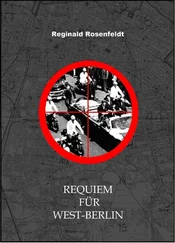Isaiah Berlin - Russian Thinkers
Здесь есть возможность читать онлайн «Isaiah Berlin - Russian Thinkers» весь текст электронной книги совершенно бесплатно (целиком полную версию без сокращений). В некоторых случаях можно слушать аудио, скачать через торрент в формате fb2 и присутствует краткое содержание. Год выпуска: 0101, Жанр: Старинная литература, на русском языке. Описание произведения, (предисловие) а так же отзывы посетителей доступны на портале библиотеки ЛибКат.
- Название:Russian Thinkers
- Автор:
- Жанр:
- Год:0101
- ISBN:нет данных
- Рейтинг книги:3 / 5. Голосов: 1
-
Избранное:Добавить в избранное
- Отзывы:
-
Ваша оценка:
- 60
- 1
- 2
- 3
- 4
- 5
Russian Thinkers: краткое содержание, описание и аннотация
Предлагаем к чтению аннотацию, описание, краткое содержание или предисловие (зависит от того, что написал сам автор книги «Russian Thinkers»). Если вы не нашли необходимую информацию о книге — напишите в комментариях, мы постараемся отыскать её.
Russian Thinkers — читать онлайн бесплатно полную книгу (весь текст) целиком
Ниже представлен текст книги, разбитый по страницам. Система сохранения места последней прочитанной страницы, позволяет с удобством читать онлайн бесплатно книгу «Russian Thinkers», без необходимости каждый раз заново искать на чём Вы остановились. Поставьте закладку, и сможете в любой момент перейти на страницу, на которой закончили чтение.
Интервал:
Закладка:
are a vindication of the belief which he has preached to his English
audience over many years: that enthusiasm for ideas is not a failing or
a vice; that on the contrary, the evils of narrow and despotic visions of
the world can be effectively resisted only through an unswerving moral
and intellectual clarity of vision that can penetrate to and expose the
hidden implications and extreme consequences of social and political
ideals.
As he points out in his Four Essays on Liberty, no philosopher has
ever succeeded in finally proving or refuting the determinist proposition that subjective ideals have no influence on historical events: but the essays in this book, with their deep perception of the moral essence
of a man as the source of his humanity, of the way in which ideals are
'lived through' in inner conflicts, argue more powerfully than any
logical demonstration in support of the belief which penetrates all
Isaiah Berlin's writings: that men are morally free and are (more often
than the determinists who hold the field believe) able to influence
events for good or evil through their freely held ideals and convictions.
AILEEN KELLY
xxiv

T H .E year 1 848 is not usually considered to be a landmark in Russian
history. The revolutions of that year, which seemed to Herzen like
a life-giving storm on a sultry day, did not reach the Russian Empire.
The drastic changes of policy on the part of the imperial government
after the suppression of the Decembrist rising in 1825 seemed all too
effective: literary storms like the Chaadaev affair in 1836, the loose
student talk for which Herzen and his friends were punished, even
minor peasant disorders in the early 40s in remote provincial districts,
were easily disposed of; in 1848 itself not a ripple disturbed the peace
of the vast and still expanding empire. The gigantic straitjacket of
bureaucratic and military control which, if not devised, was reinforced and pulled tighter by Nicholas I, appeared despite frequent cases of stupidity or corruption to be conspicuously successful.
There was nowhere any sign of effective independent thought or
action.
Eighteen years earlier, in 1830, the news from Paris had put new
life into Russian radicals; French Utopian socialism made a deep
impression on Russian social thought; the Polish rebellion became the
rallying point of democrats everywhere, very much as did the republic
in the Spanish civil war a century later. But the rebellion was crushed,
and all embers of the great conflagration, at any rate so far as open
expression was concerned, were by 1848 virtually stamped out-in St
Petersburg no less than in Warsaw. To observers in western Europe,
sympathetic and hostile alike, . the autocracy seemed unshakeable.
Nevertheless the year 1848 is a turning-point in the development of
Russia as of Europe, not only because of the decisive part played in
subsequent Russian history by revolutionary socialism, heralded by the
Manifesto composed by Marx and Engels to celebrate its birth; but
more immediately because of the effect which the failure of the
European revolution was destined to have upon Russian public opinion,
and in particular upon the Russian revolutionary movement. At the
time, however, this could scarcely have been foreseen: well might a
sober p(>lirical observer-a Granovsky or Koshelev-feel gloomy about
I

R U S SIAN THINKERS
the possibility of even moderate reforms; revolution seemed too remote
to contemplate.
It seems unlikely that anyone in the 184os, even among the bolder
spirits, except perhaps Bakunin and one or two members of the
Petrashevsky circle, counted on the possibility of an immediate revolution in Russia. The revolutions that broke out in Italy, France, Prussia and the Austrian Empire had been made by more or less
organised political parties, openly opposed to the existing regimes.
These were composed of, or acted in coalition with, radical or socialist
intellectuals, were led by prominent democrats identified with recognised political and social doctrines and sects, and found support among the liberal bourgeoisie, or from frustrated national _movements at
various stages of development and animated by different ideals. They
tended also to draw a good deal of strength from disaffected workers
and peasants. None of these elements was articulate or organised in
Russia in any sense resembling the situation in the west. Parallels
between Russian and western European development are always liable
to be superficial and misleading, but if a C!)mparison is to be drawn at
all the eighteenth century in Europe offers a closer analogy. The
opposition of Russian liberals and radicals which, after the severe
repressions following the Decembrist rising, began to grow bolder and
more articulate in the middle 30s and early 40s, resembled the guerrilla
warfare against the Church and absolute monarchy conducted by the
Encyclopedists in France or by the leaders of the German Aufkliirung,
far more than the mass organisations and popular movements in western
Europe of the nineteenth century. The Russian liberals and radicals of
the 30s and 40s, whether they confined themselves to philosophical or
aesthetic issues, like the circle gathered round Stankevich, or concerned
themselves with political and social issues, like Herzen and Ogarev,
remained isolated lumieres, a small and highly self-conscious intellectual
elite; they met and argued and influenced each other in the drawingrooms and salons of Moscow or St Petersburg, but they had no popular support, no widely extended political or social framework either in the
form of political parties or even in the kind of unofficial but widespread
middle-class opposition which had preceded the great French Revolution. The scattered Russian intellectuals of this period had no middle class to lean upon, nor could they look for help from the peasantry.
'The people feel the need of potatoes, but none whatever of a constitution-that is desired only by educated townspeople who are quite powerless,' wrote Belinsky to his friends in 1846. And this was
2


R U S S IA AND 1 8 4 8
echoed thirteen years later by Chernyshevsky in a characteristic
hyperbole: 'There is no European country in which the vast majority
of the people is not absolutely indifferent to the rights which are the
object of desire and concern only to the liberals.'1 While this was
scarcely true of most of western Europe, then or earlier, it reflected
the backward state of Russia accurately enough. Until the economic
development of the Russian Empire created industrial and labour
problems and with them a middle class and a proletariat of the western
type, the democratic revolution remained a dream: and when such
conditions finally materialised, as they did with increasing tempo in
the last decades of the nineteenth century, the revolution did not lag
far behind. The 'Russian 1 848' occurred in that country in 1905,
by which time the middle class in the west was no longer revolutionary
or even militantly reformist; and this time-lag of half a century was·
Читать дальшеИнтервал:
Закладка:
Похожие книги на «Russian Thinkers»
Представляем Вашему вниманию похожие книги на «Russian Thinkers» списком для выбора. Мы отобрали схожую по названию и смыслу литературу в надежде предоставить читателям больше вариантов отыскать новые, интересные, ещё непрочитанные произведения.
Обсуждение, отзывы о книге «Russian Thinkers» и просто собственные мнения читателей. Оставьте ваши комментарии, напишите, что Вы думаете о произведении, его смысле или главных героях. Укажите что конкретно понравилось, а что нет, и почему Вы так считаете.










